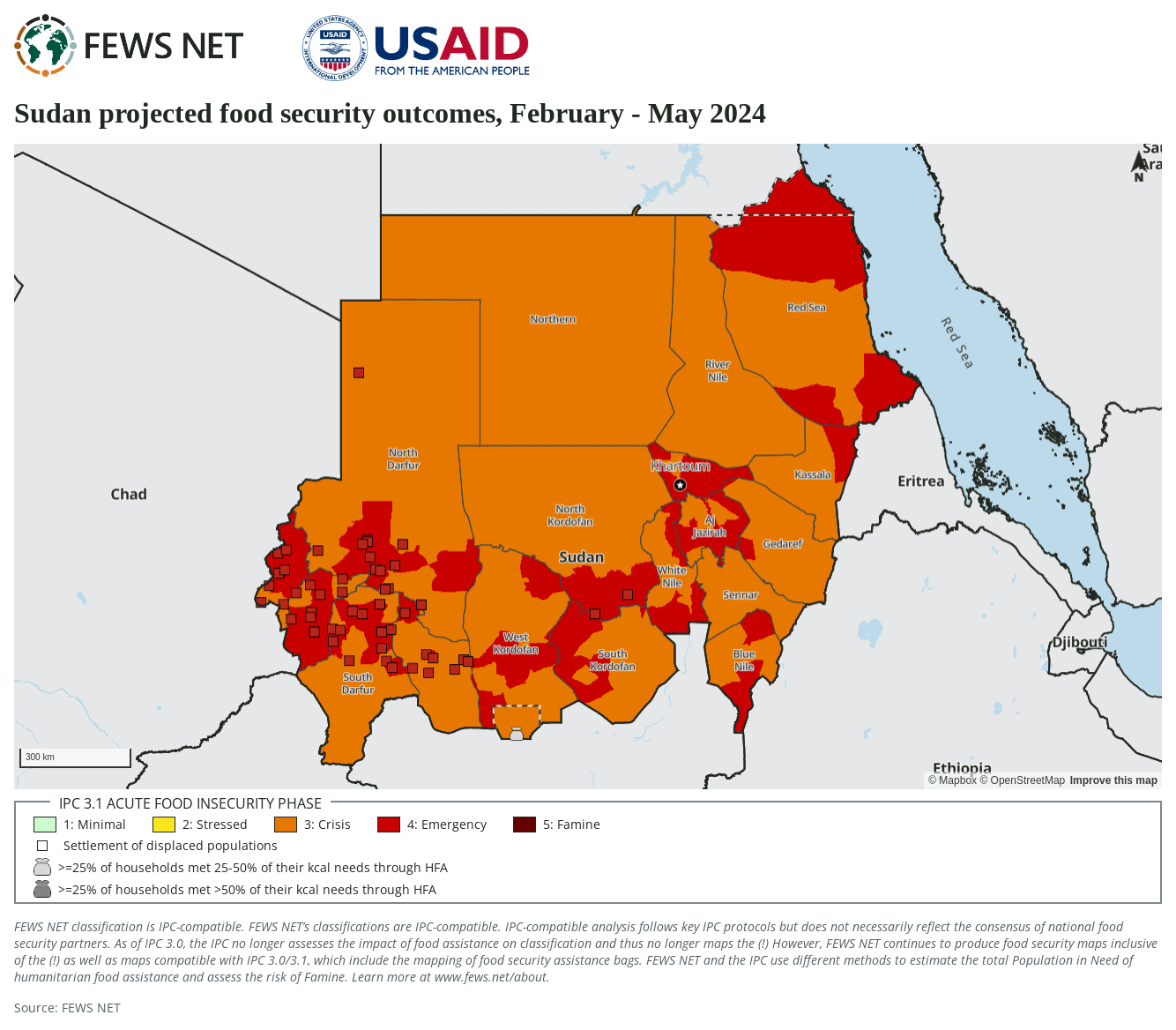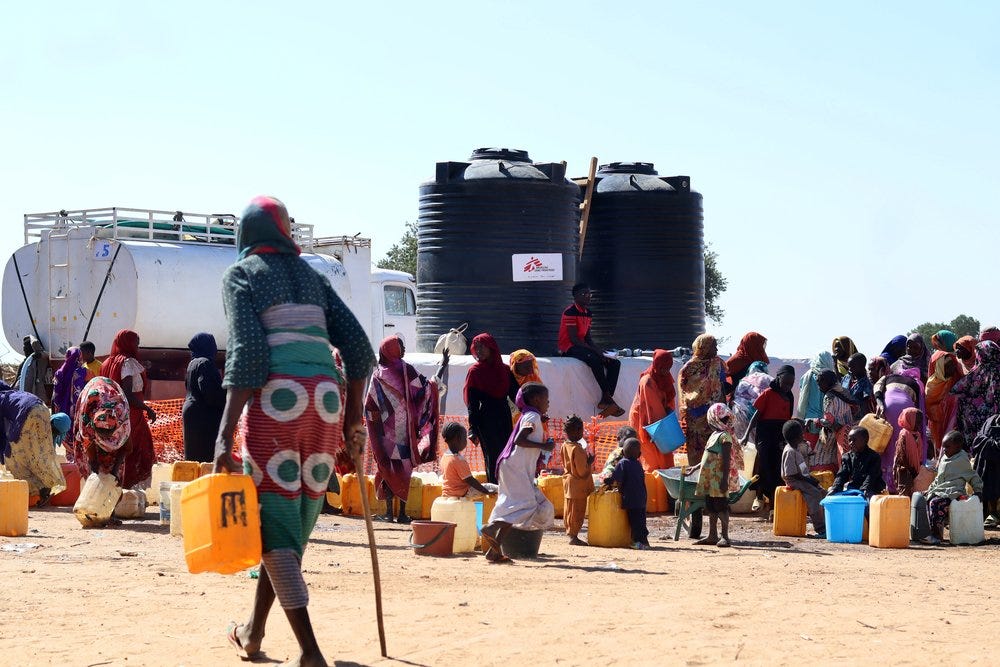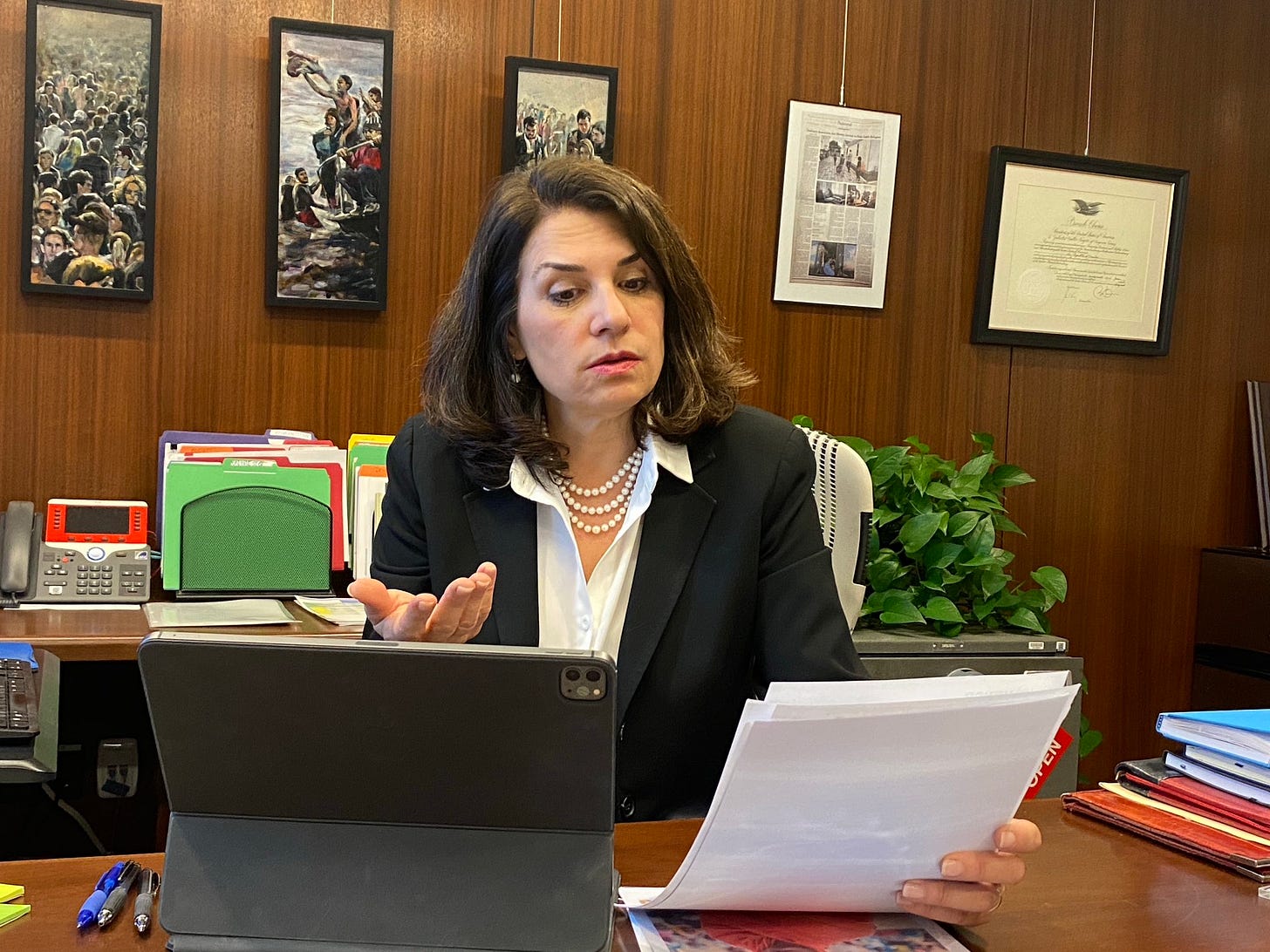Ceasefire needed to prevent famine, U.S. says
Humanitarian funding inadequate to meet the scale of the crisis
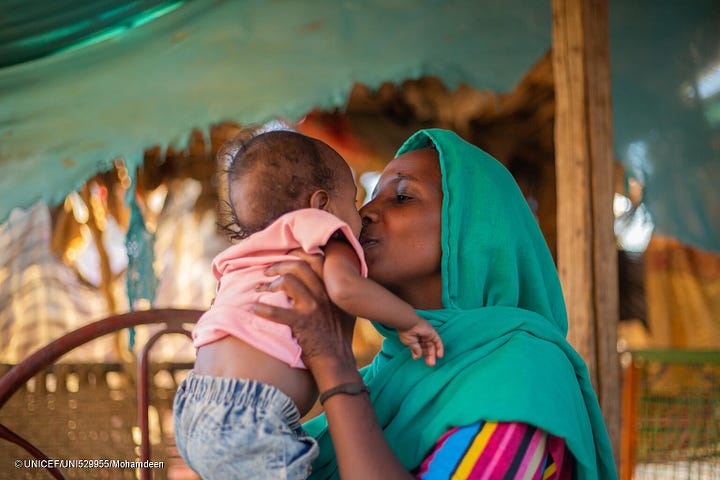
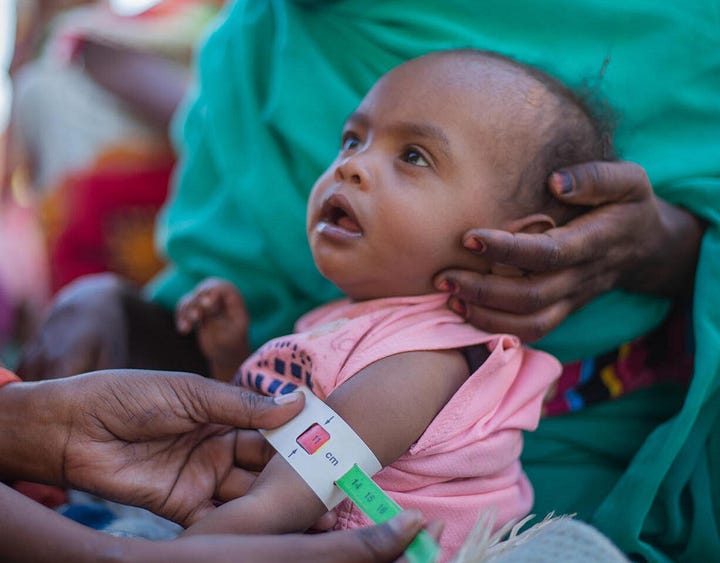
A ceasefire is needed in Sudan to prevent a famine, a top U.S. official said yesterday during a digital press briefing, following visits to Chad and Ethiopia, where she met with government officials, humanitarians, and refugees.
“Preventing a famine and long-term catastrophe will require both a ceasefire and unhindered humanitarian access,” said Assistant Secretary of State Julieta Valls Noyes, head of the State Department’s Bureau of Population, Refugees, and Migration.
Her remarks echoed a warning by the State Department’s official spokesperson, Mathew Miller, who said the same thing last week, as well as UN officials, who briefed the Security Council that the East African nation is on the “brink of famine.”
Forecasters have warned of the risk of a famine in parts of Darfur and Khartoum, but there are different assessments about the potential severity and scope of the famine.
The U.S.-funded Famine Early Warning Systems Network recently forecast a nationwide cereal availability gap of about 2 million metric tons, due to poor harvests caused by conflict, and reduced imports. Additionally, ongoing fighting is expected to prevent traders and humanitarians from efficiently distributing food from surplus to deficit areas. This will result in famine conditions for some households, while the majority of the population will suffer crisis or “emergency” conditions.
The traditional lean season will last through September, after which harvests could make food temporarily more plentiful, before a new hunger cycle begins in 2025.
Anecdotally, there are reports that hundreds of children and other vulnerable people have already starved to death in Darfur, and health clinics are treating thousands of malnourished children in other parts of the country.
The United States’ special envoy for Sudan, Tom Perriello, is seeking resumption of peace talks after the end of Ramadan. Fighting has continued in the country despite appeals for a humanitarian ceasefire during the Muslim holy month.
During her briefing yesterday, Valls Noyes said that the U.S. recently pledged an additional $47 million for the humanitarian response in Sudan’s neighbors, including Chad and South Sudan. That amount brings total U.S. assistance to nearly $1 billion since the conflict erupted a year ago.
In spite of this, many humanitarian needs are unmet, both in Darfur and neighboring countries such as Chad, where 560,000 Sudanese have taken refuge. UNHCR’s Deputy High Commissioner Kelly T. Clements said earlier this month after visiting Chad that “resources are scarce and humanitarian funding is extremely tight.”
“Chadian officials are concerned that many more hungry Sudanese families will come in the next weeks,” she said. “Arrivals have slowed in the last months, but that could change quickly. Even without more coming, needs now run well beyond the capacities of humanitarian agencies…. Resources are scarce and humanitarian funding is extremely tight… a dire situation could become much worse very soon.”
Refugees face not only hunger but also lack of water and unsanitary conditions. MSF has reported an outbreak of about 1,200 cases of Hepatitis E, which is spread through drinking water contaminated with fecal matter.
According to the medical aid organization, there is only one latrine available per 677 people in Adré Camp, and only one latrine per 225 people in Metché camp. “The situation is disastrous in all camps,” said Erneau Mondesir, MSF medical coordinator in Adré. “If we do not act quickly to improve hygiene infrastructure and people's access to drinking water, we risk seeing an increase in preventable illnesses and deaths.”
An estimated 90% of the 560,000 Sudanese refugees who have arrived in Chad since last year are women and children. They face not only food and water shortages but also a lack of services such as education and psychosocial support. Valls Noyes, who met with rape survivors during her trip to the camps, said,
“To address the long-lasting impact of mental health distress experienced by gender-based violence survivors, our partners in Chad are working to integrate mental health support throughout their programs, but resources are very limited and the needs are overwhelming. I was personally devastated to hear from so many survivors of gender-based violence who remain profoundly traumatized by their experiences.”
Valls Noyes also highlighted the risk of a chronic crisis causing a state of long-term dependency among refugees in neighboring countries, similar to what happened after the previous Darfur war in that began in the early 2000s. Compared to the previous Darfur crisis, this one is worse, she said:
“I met with refugees who had arrived in 2004 fleeing from the situation in Darfur and they unanimously said that as terrible as the situation that they had lived was, the situation of refugees arriving today is much worse. So it is a profound challenge, it is the largest humanitarian crisis in the world right now, and it is a crisis that requires a response by many countries and many organizations.”
Preparations for attack on El Fasher
The Rapid Support Forces (RSF) are mobilizing troops for a potential attack on the North Darfur capital, El Fasher, sources in West Darfur informed Sudan War Monitor.
One of the sources, a military source from El Geneina, ranked lieutenant, informed that the RSF had gathered its forces in Turab al-Ahmar camp and Tirilly Mountain, east of Um Guwein area in El Geneina, where vehicles loaded with heavy and small weapons have already reached the camp. According to the source, RSF’s Sector Commander in West Darfur is supervising the mobilization in the state.
In a related development, the same sources told that the JEM faction led by Suleiman Sandal, the new splinter faction of JEM, is gathering its forces in Jebel Moon, in the Sirba area, potentially coordinating with the RSF.
The gathering in West Darfur came after SAF warplanes targeted the RSF gathering areas in North Darfur, Zurrug area in particular.
Other sources from North Darfur informed that RSF is also gathering its forces in El-Kuma, Um Kaddada, Kutum, and Kabkabiya in North Darfur.
The below videos show a recent parade by RSF-affiliated fighters in El Geneina last month. The city is fully under control of RSF and surplus fighters are potentially deployable elsewhere to reinforce RSF efforts in El Fasher or Khartoum.
In brief
The Sudanese army continued its offensive in western Omdurman, reportedly advancing toward Souk Libya area.
East African regional bloc IGAD has appointed Lawrence Korbandy, a South Sudanese attorney, as its special envoy for Sudan.
Local authorities in the SPLM-N-controlled Nuba Mountains have condemned the killing of school children in Al-Adra, which they blamed on an airstrike.
Nine civilians, including women and children, were killed and 24 others were injured in an air strike launched by army warplanes at dawn on Monday on targets in the north and east of El Fasher.
Vicky Ford, chair of the UK’s All Party Parliamentary Group for Sudan and South Sudan, said after a meeting of the group last week that “urgent action (is needed) to address the dire food security situation and humanitarian need in Sudan. The international community must step up their financial contributions to humanitarian aid.” She also called for an immediate and unconditional ceasefire.
Thanks for reading Sudan War Monitor. Our work provides situational awareness and supports risk assessment for those seeking to follow Sudan’s civil war.
We’ve been able to sustain and grow this initiative thanks to a diverse network of supporters around the world. You can help by signing up for a monthly or annual subscription, or by making a one-time donation.


